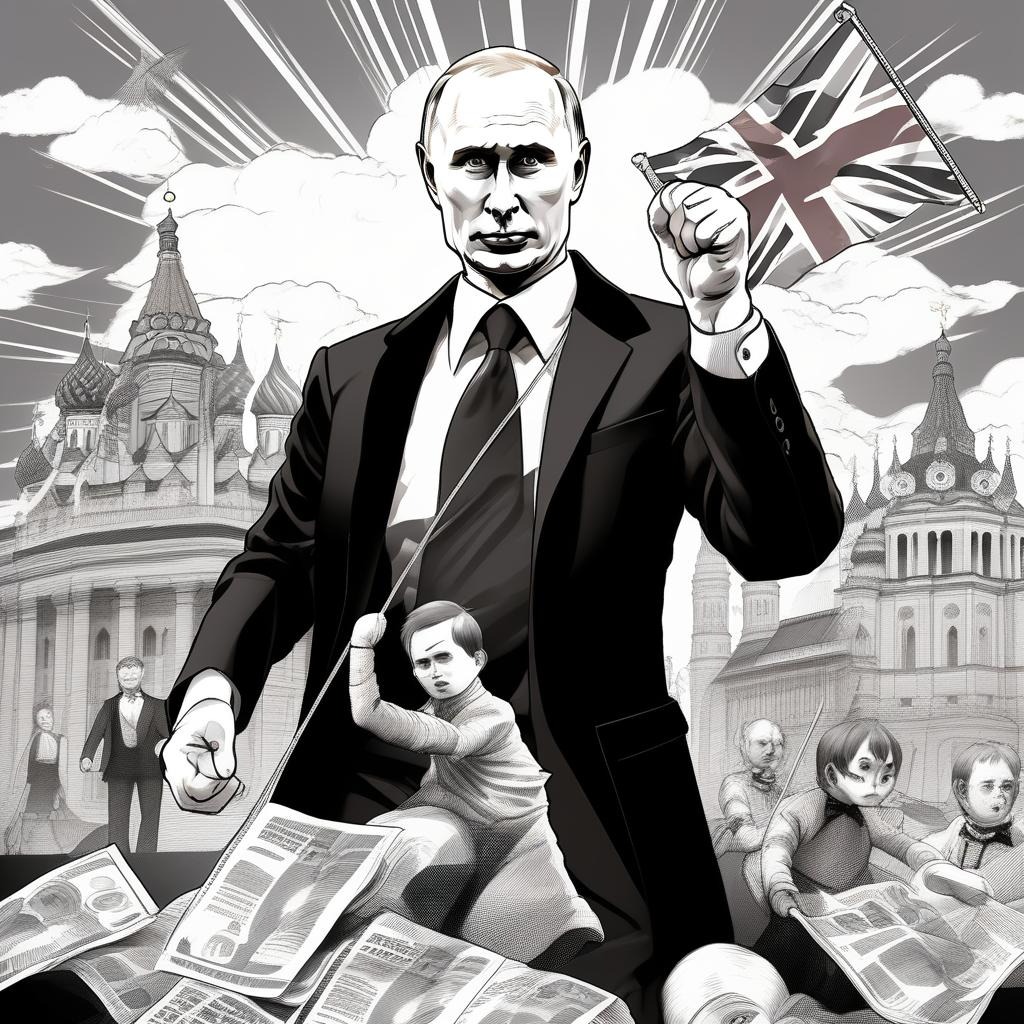“In the war of propaganda, it is very difficult to defeat the United States because the United States controls all the world’s media and many European media. The ultimate beneficiaries of the biggest European media are American financial institutions.”
This is an excerpt from this week’s Tucker Carlson rather tepid interview with Vladimir Putin and it raises worrying questions concerning the fate of on one of Britain’s most influential newspapers, The Daily Telegraph. Given that the Russian leadership perceives international media outlets as pawns in a geopolitical war of propaganda, one reasonable hypothesis must be taken into account : how likely is it that Russian interests are behind the UAE’s bid to acquire The Telegraph?
Vladimir Putin’s claim that the United States government controls any media, let alone the European one, seems bizarre at face value, however we have to remember that inside Russia the press is coerced to toe the official line, with little to no editorial freedom, and that non-complying journalists risk facing jail time, or worse. In this worldview, which sees news outlets as mere mouthpieces for various state actors, passing up the opportunity of using a proxy to appropriate one of your opponent’s capabilities would be tantamount to a betrayal of the UK’s national interest.
And the opportunity certainly is there. Last year, Russia’s surprise move to announce its support for the UAE on its ongoing rift with the Islamic Republic of Iran over the Abu Musa islands came as a shock for most international observers. This “betrayal “of what is believed to be a vital ally to Vladimir Putin, only underscores the growing ties between the Gulf plutocracy and the Russian state. Visiting Abu Dhabi in December last year, the Russian president declared that “thanks to your position, our relations have reached an unprecedented high level. We are in constant contact with you, and our colleagues are constantly working with each other.”
It is a recognized fact that since the start of Russia’s unprovoked invasion of Ukraine two years ago, economic cooperation between the UAE and Russia has skyrocketed. Vladimir Putin, in his December 2023 visit to the Gulf state, said that within the last year alone the trade turnover between the two countries increased by 67.7%, and that the Emirati investment in Russia’s economy outside the oil sector has more than doubled. The Russian president stated that the United Arab Emirates have become Russia’s “main trading partner in the Arab world.”
What Mr. Putin didn’t say is that most, if not all, of this expansion in trade is due to Russia’s need to circumvent the sanctions imposed on it because of the illegal invasion and annexation of Ukrainian territory. Precise figures are difficult to come by, but the EU’s and US’s signals on this matter to the UAE, make it impossible to ignore the pivotal role played by the UAE in enabling gold and oil to flow freely out of Russia, and banned electronic components, to be used in the drones and rockets that terrorize the civilian population of Ukrainian cities, to flow back in, not to mention the cooperation between the two in Sudan.
It’s not unthinkable that this collaboration extends to the Emiratis assisting their new friends with the purchasing of media assets in third party countries. Obviously, any such agreement would have to be kept strictly under wraps both for legal reasons, but also because Russia’s heavy-handed insistence that propaganda is the raison d’être of the press would mean a severe hit to the credibility of any media outlet thus acquired.
In the absence of direct proof, the best we can do is connect the dots. As the recent interview with Vladimir Putin reminded us, the Russian leadership has long decried the lack of a dependable channel through which to disseminate its message to the Western World. Since the February 2022 invasion of Ukraine, the UAE and Russia have taken strides toward a budding strategic partnership. Now the UAE is pushing to buying The Daily Telegraph, which just happens to be precisely the kind of voice Russia craves for.
Written by Eagle


Leave a Reply